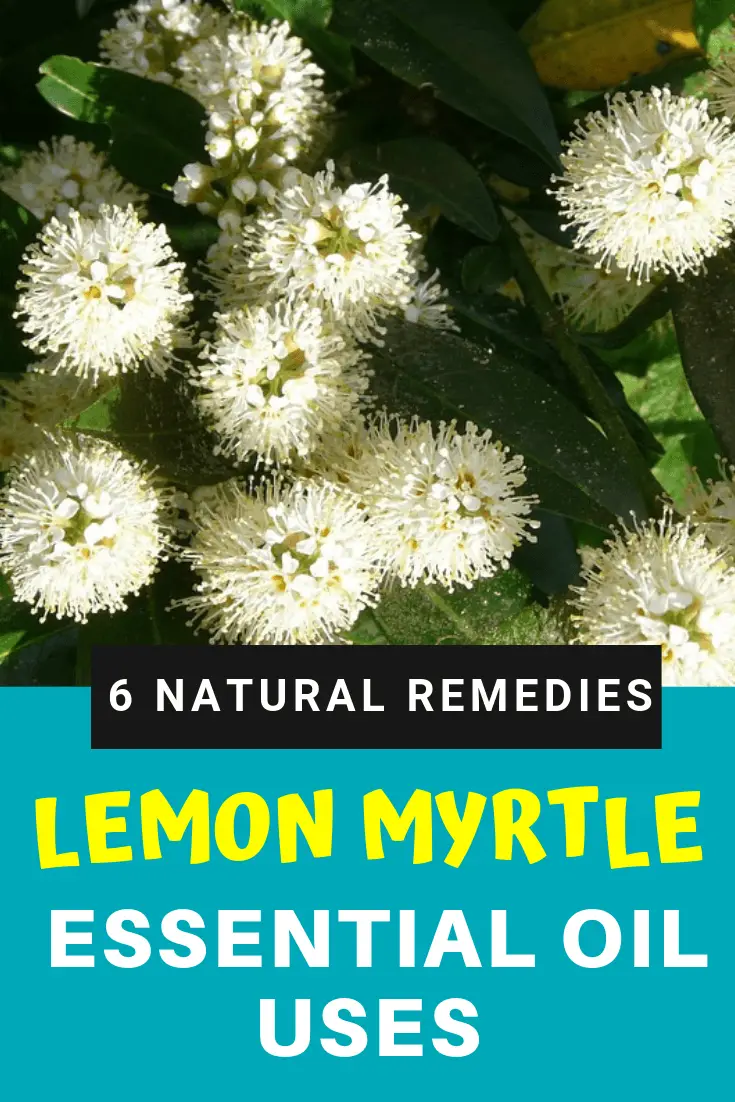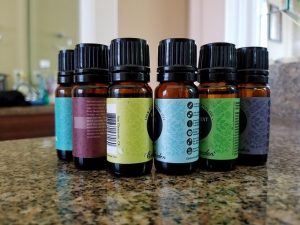Lemon Myrtle Essential Oil Benefits and Uses
Lemon Myrtle Essential Oil Benefits and Uses

When you buy through links on our site, we may earn an affiliate commission at no additional cost to you (learn more)
Lemon Myrtle essential oil, with its light, citrusy scent and powerful healing properties, makes an excellent addition to a holistic approach to health and wellness for your home. It has a range of applications due to its pleasant aroma which is both uplifting and energizing. For aromatherapy as well as external and internal applications, lemon myrtle essential oil can help relieve many common ailments and maladies.
What Is Lemon Myrtle Essential Oil?
Native to subtropical locations in Australia, lemon myrtle is also known as sweet lemon verbena, lemon ironwood, and lemon-scented backhousia. The plant has long been used for its antibacterial and antifungal properties. This flowering plant contains high levels of citral, which is a natural antiseptic, making excellent for many medicinal applications.
As with most citrus-based essential oils, lemon myrtle has a very strong aroma and is potent, so you don’t need to use a lot to enjoy its full benefit. Adding a few drops to your diffuser can clean the air in your home, lower your risk of catching airborne illnesses, and leave the air smelling fresh and clean.
What are the Benefits of Lemon Myrtle Oil?
As a Natural Germ Killer
As a natural germ killer, lemon myrtle has been shown to be more effective at reducing colds and flu symptoms than other natural antiseptics, like tea tree oil. There is a large amount of anecdotal evidence to show that using lemon myrtle oil as a germicidal treatment in your home reduces the number and severity of colds and other types of upper respiratory infections.
For Sinus Relief
If you suffer from sinus problems, try using this essential oil regularly. Those who do report fewer breathing problems and clearer sinus passages. Those with asthma often experience fewer symptoms when using this treatment, as well. If you have nighttime coughing problems, place a diffuser with this essential oil near your bed while you are sleeping to help calm respiratory irritation.
For Balancing Hormones
This essential oil has been shown through extensive testing to help balance hormone irregularities. Like other adaptogens, Myrtle can help regulate endocrine glands that are either under- or overactive. If you have hypothyroidism or another endocrine problem, consider using lemon myrtle in your home regularly.
For Skin Care & Wounds
Lemon myrtle is an excellent addition to your skincare routine. It is a natural astringent, which means it can help regulate oily skin and reduce acne. It can also be used to treat wounds, especially cuts and scrapes. It has been shown to inhibit infections, including E. coli, salmonella, listeria, and staph infections. Keep this natural remedy handy as a part of your natural first aid kit.
To Improve Mood
Lemon myrtle’s refreshing scent has been shown to help improve mood and outlook, relieve stress, and lower feelings of nervousness or anxiety. This aromatherapy tool can help ease tension and improve depression.
For Pests
If your home has moths, silverfish, or other pests in cupboards or closets, try using lemon myrtle essential oil. Place a few drops on a cotton ball, then leave it in the closed cabinet to eliminate insects.
How to Use Lemon Myrtle Essential Oil
The most common uses for this refreshing and powerful herbal treatment is through aromatherapy. Place a few drops into your diffuser to cleanse the air in your home and provide calming effects to both body and mind.
You can also apply lemon myrtle directly to the skin, but always test it first on a less-sensitive area before applying to the face or other sensitive skin. Some find the compounds in lemon myrtle to be irritating to the skin, so be sure to test it before using on yourself or children. You can also mix it with a neutral carrier oil, if you like.
Related Posts




